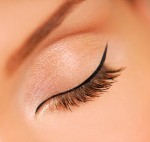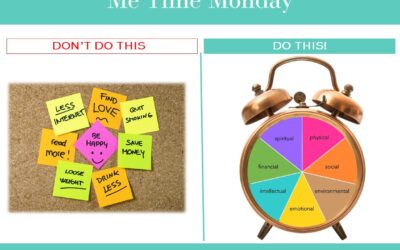 In the classic children’s story from the Brothers Grimm, a beautiful princess sleeps her way to an enchanting life with a handsome prince. If it were only that easy. For many of the nation’s 65 million family caregivers, sleep is an elusive luxury and a true fairy tale. In fact, a National Alliance for Caregiving study on caregiver health risks found 87 percent of those caregivers surveyed suffered from insomnia. As National Sleep Awareness Week kicks off this week, it is a perfect time for caregivers to understand how to find their inner Sleeping Beauty.
In the classic children’s story from the Brothers Grimm, a beautiful princess sleeps her way to an enchanting life with a handsome prince. If it were only that easy. For many of the nation’s 65 million family caregivers, sleep is an elusive luxury and a true fairy tale. In fact, a National Alliance for Caregiving study on caregiver health risks found 87 percent of those caregivers surveyed suffered from insomnia. As National Sleep Awareness Week kicks off this week, it is a perfect time for caregivers to understand how to find their inner Sleeping Beauty.
When it comes to caring for a parent, spouse or other loved one, sleep is not just for beauty it is actually one of the easiest and best ways to improve health and maintain the energy needed to continue to be a caregiver. Restorative sleep, uninterrupted for 7-9 hours is recommended by most experts. If you suffer from insomnia and sleep deprivation, you are at risk for numerous health issues. Lack of sleep can cause you to be forgetful, become drowsy or distracted, increase your appetite and lead to weight gain and may even lead to Alzheimer’s disease and heart attacks.
According to the National Sleep Foundation, more than 50 percent of people over age 65 suffer sleep disorders that ultimately shorten their lives and 70 million people in the U.S. have sleep problems. As if we don’t have enough debt in our lives, this deprivation of sleep is called sleep debt. In an interview she did with WebMD, Susan Zafarlotfi, PhD, clinical director of the Institute for Sleep and Wake Disorders at Hackensack University Medical Center in New Jersey, said, “Sleep debt is like credit card debt. If you keep accumulating credit card debt, you will pay high interest rates or your account will be shut down until you pay it all off. If you accumulate too much sleep debt, your body will crash.”
One study conducted by Australian researchers found losing two hours of sleep impairs your performance equal to having 0.05 blood alcohol level and the National Highway Traffic Safety Administration estimates there are 100,000 crashes each year based on driver fatigue.
In addition to being able to function, another study done at the University of Washington at St Louis Medical School found people who had more than five awakenings per hour during the night were more likely to have pre-clinical Alzheimer’s disease (which means they have normal mental skills but their brain changes are associated with the degenerative disorder). And yet another study published in Stroke – The Journal of the American Heart Association found the risk of heart attack in people with insomnia ranged from 27 percent to 45 percent greater than for people who rarely experienced sleep awakenings during the night.
Other studies have shown healthy adults allowed to sleep just 5.5 hours a day quickly developed abnormal insulin levels and slowed metabolism. The researchers estimated the metabolic changes could translate into 12 extra pounds a year. Eve Van Cauter, who directs the research laboratory on sleep at the University of Chicago, has been doing sleep research for 25 years and has found there are two hormones, gherlin and leptin, which influence our eating and weight in different ways. She calls these hormones the “yin and yang of hunger…One is the accelerator for eating (ghrelin), and the other is the brake (leptin).” Lack of good restorative sleep causes these hormones to be out of balance and thus, your body gains weight.
Insomnia typically is a function of not being able to relax our minds and our bodies. The chronic stress of caregiving can lead to insomnia yet in the same way personal hygiene needs to be maintained, sleep hygiene is just as important. To get some sleep, try these four sleep hygiene tips from Dr. Lawrence J. Epstein, head of the division of sleep medicine at Harvard University:
1. Create a sleep-inducing environment: a dark, quiet, comfortable and cool room.
2. Do not use your bedroom for anything other than sleep or sex. Ban TV watching, laptops or iPads and no reading in bed.
3. Make sure you do not eat at least two to three hours before bedtime, and avoid caffeine or alcohol close to bedtime. Smoking can also cause you to have trouble sleeping. If you find you are tossing and turning at night and you cannot get those eyes closed, try drinking green or chamomile tea before bed or put a lavender pillow near your head which aids relaxation. A glass of milk also works (unless you are lactose intolerant; if so, go back to tea).
4. Create consistent sleep cycles. Establish consistent sleep and wake schedules, even on weekends. Our bodies have internal clocks called circadian rhythms that synchronize our active and rest states with biochemical reactions in our bodies. Circadian rhythms are based on light/dark cycles – with light having the most impact on our ability to get to and stay in restorative sleep.
If all else fails everyone from Deepak Chopra to Norman Lear have gadgets and apps that will help with inducing sleep. Dr. Chopra introduced the Dreamweaver, a pair of high-tech goggles that feeds light into your body at different frequencies. When combined with various calming music, you achieve an altered state of meditative relaxation, dreams and sleep that leaves users feeling blissful and energized.
Norman Lear, the television icon who kept us alert as creator of provocative programs such as All in the Family and Maude, now wants to put us to sleep. As chairman of the board for Concord Music Group (the largest independent record and music publishing company whose roster includes Sir Paul McCartney and Esperanza Spalding), Lear is intimately involved in a Concord initiative which includes an app using music and neuroscience to promote sleep and stress relief.
“Even if you get enough sleep, it may not be healthy sleep,” says Dr. Don Harden, medical director at the Sleep Wellness Institute. “About 40-50 million people in the U.S. suffer from chronic sleep disorder and another 20-30 million have intermittent sleep-related problems related to stress, anxiety and depression.”
For caregivers, it is time to awaken to the fact sleep may be your best medicine. Sweet dreams.
Excerpted from A Cast of Caregivers – Celebrity Stories to Help You Prepare to Care by Sherri Snelling (Balboa Press).






0 Comments